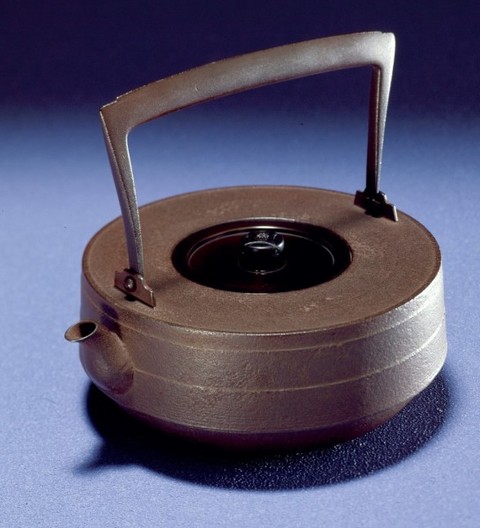
平安時代の中頃に、山形地方で起こった乱を治めるため、源頼義がこの地方を転戦しました。
その時、軍と行動をともにした鋳物職人が、山形市内を流れる川の砂と千歳公園あたりの土質が鋳物に最適であることを発見しました。これらの鋳物職人のうちの何人かがこの地に留まったことが山形鋳物の始まりとなりました。

In the middle of the Heian period (794-1185), Minamoto Yoriyoshi fought a number of battles in the Yamagata area in an effort to quell various uprisings. The metal casters, who were part and parcel of the army and operations, discovered that the quality of the sand in the river flowing through Yamagata city and the earth in present-day Chitose park were ideal for casting. Some of those casters settled in the area and became the founders of Yamagata metal casting.
The tea ceremony is perhaps most representative of Japanese culture and many chagama, the pots for boiling water in during the tea ceremony are produced in Yamagata. The lightness, perfect shape and furthermore, the fine delicate surface of the iron kettles, the bronze vases, the iron cooking pots and ornaments cast here are the result of outstanding and well applied techniques used in the making of these traditional craft pieces. Today there are 22 firms employing 118 people, among whom there are 14 government recognized Master Craftsmen.